Under the Red Hood: A conversation with Gretchen Felker Martin
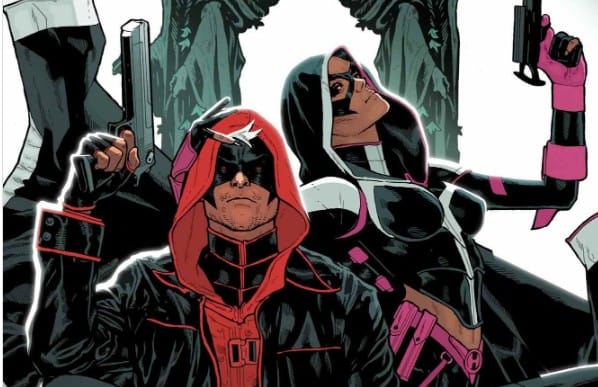
In 1988, something wild happened at DC Comics: Robin, Batman's kid sidekick, died.
Not the first Robin, mind you: not the (still incredibly popular) ex-circus acrobat who defined the role. This was a street kid named Jason Todd, whom Batman took in after catching him trying to boost the Batmobile's tires and trained as his crime-fighting agent. Jason was rougher edged, angrier, more violent than his predecessor and less popular. When DC decided to run a gimmick vote for a character to live or die, he was the obvious choice.
The vote was close. Jason lost. In Batman #428, the climax of Death In The Family, he was killed off by the Joker. His tattered costume would be a fixture in over a decade of Batman comics, exhibited in the cave to give the already haunted Bruce Wayne something further to brood over. And that, theoretically, was that.

Except that – oddly enough – it wasn't. In 2005, through a set of comics shenanigans too ridiculous to get into, Jason Todd was brought back to life as the Red Hood, a gun-toting, murderous vigilante who had little patience for Batman's code against killing.
Over the subsequent years, Jason Todd's been something of a bad penny. He's jumped back and forth between being an out-and-out villain and an anti-heroic protagonist, between bullets made of lead and bullets made of rubber. (The bullets are non-negotiable. He's not Batman, after all.) And along the way, he developed an extremely fervent fanbase, one entranced by the idea of a broken, brooding, and violent man who continually struggled with whether – and how – to do the right thing.
Asher here. Welcome to Heat Death, the newsletter that knows a fictional man is just sexier when he's murderous.
This September, Jason Todd's getting his own starring title from DC, Red Hood, by Manhunt novelist (and friend of the newsletter) Gretchen Felker Martin and artist Jeff Spokes. In this series, Jason Todd has left Batman behind, heading off for a new city with just a costume, a bike, a determined sense of justice, and a metal briefcase containing two handguns. And, of course, lots and lots of bullets.
I caught up with Gretchen to talk about crafting Red Hood, getting into Jason's head, working in the morally static world of IP, the violent gun-men of American superhero comics, and more.
It's Heat Death. Stay with us.

What's your background with DC?
I did not see any of the animated series until I was in my late twenties, and I never read comics as a kid, at least not cape stuff. So it's been kind of a circuitous route. The first comic I got really into – like all other human beings, was Watchmen, which is sort of learning how to take a car apart and put it back together before you learn how to drive. Then in college I got really into Swamp Thing. I had a roommate who had, I think every issue of every Swamp Thing comic or guest appearance ever published, and I read through that entire stack over the course of a couple of years. It really did make me question my own kind of knee-jerk dismissal of cape stuff.
I'm still not its biggest fan: it's not something that appeals to me inherently, but I do love noir and I love mystery and those are things that share a lot of DNA with it. You think about The Big Sleep or Out Of The Past or Night Of The Hunter. There's a lot in common especially with Batman, which is visually so much about shadows.
Yeah, the shared roots with noir and mystery are interesting. Once you accept a narrative framework where people are sort of muddling around with "The Law" as one of many options, and not as the singular order against chaos, you open up space for pulp detectives and superheroes to exist. Because otherwise, why aren't they official cops?
Of course. That's a large part of what's interesting about it to me: obviously we live in a moment in time when it's very, very apparent to any thinking person that the law is a collection of ideas, which exist or don't exist based on who agrees with 'em. And clearly they can be circumvented by people with enormous power, but they can also be circumvented by people who don't have a lot of power. And vigilantism has become such a part of American culture: the tradition of the gunslinger, the private eye. I think with Jason in particular, his dissatisfaction with the way that society handles criminality and violent crime gives you this really interesting lens with which to examine whatever moment you're writing him in.
How did this project come about? Did DC come to you, or did you go to them?
They gave me an opportunity to pitch for it, and said they'd like me to write it, and then my pitch was accepted. It was really short and straightforward.
Did they have a sense of what they wanted the book to be?
They had a couple of ideas. They wanted it set somewhere outside Gotham, in some sort of interesting locale in America. And they wanted Huntress to be involved. Those were really the only top down requirements that I came in with.
Obviously you have a very specific approach to fiction, which is maybe not something that people would expect to see in a Batman family comic.
And it's not going to be like Calvaire or The Loved Ones, but nor is it tame material. I did go in knowing what I could and couldn't do. That said, I was also able to successfully push what I couldn't do. Like killing cops. The degree and intensity and amount of on-page murder got initial pushback. The comic involves killing a lot of police officers, killing FBI agents, killing ICE agents. And obviously we're in a very politically tumultuous and fractious time, and DC is a big company, and that could rub some editors the wrong way. But my editor, Arianna Turturro, was really supportive and so far everything has been going smoothly. I've been able to tell the story that I want to tell, which is a story about fascism and corruption and abusive state power.
I think my favorite part of the whole process, by the way, has been seeing Jeff [Spokes] and Becca [Carey] bring the comic to life. It might be my ideas, but Jeff especially is doing the lion's share of the labor, and I'm astonished at how fast he does it. Becca's lettering is just gorgeous, too. It really nails the grimy back-alley feel I'm going for. It's so cool to see what you've imagined pass through the lens of someone else's perceptions.

So what's the basic plot of this comic?
So I have not actually read this comic, but apparently it springs off from Hush 2 –
Don't worry. I also have not read Hush 2.
I mean, no shade! I'm sure it has a lot to recommend it, and is appealing to a lot of people with taste different than mine.
My comic picks up where that ends, and Jason is off on his own in the Louisiana coastal city of New Angelique, which is strongly inspired by New Orleans. He's picked up this thread of murder-suicides involving police officers and retired police officers. A telepath is possessing cops and forcing them to shoot other cops and then themselves, and broadcasting the cell phone videos on the internet. And so Jason goes digging into this and really begins to uncover stuff not just about the telepath, but about the police in New Angelique. What they've done and what they're connected to, and how far this kind of institutional rot spreads.
So how did you find your way into Jason as a character?
The first thing that everyone thinks about him is that he died and he came back to life, and that's interesting in a pulp way. But I think it's much more interesting to me that he comes from the street. He's someone who has experienced total systemic failure over and over and over and over again, and then got turned, basically, into a child soldier by an obsessive billionaire vigilante who wants to impose his own vision of justice. So he's been at these very weird extremes of what justice looks like, and what daily life looks like. And I think now he's really poised as a character to go off and form his own beliefs, and figure out who he is in the absence of all of this stress and difficulty and unfamiliarity.
Sort of like Jason Todd: Rebirth?
I don't know that I'd call it a rebirth so much as a crashout. Someone who has done so much with his life and so little of it at his own volition is that he's finally just done and can't take it anymore.
Something that I've always found really interesting about that character sits very awkwardly in his context. There are creators who will write him as running around Gotham shooting people when Batman's around and – famously! – has very strong feelings about people doing that.
That always felt weird to me! And you can kind of see that in his history as a guest in other comics. They're very back and forth on what his relationship to violence is and what Batman's relationship to that is.
Well, so how do you think of his relationship to violence, then?
I think he's come to a point in his life where he realizes that sometimes, murdering someone who is actively and maliciously ruining the lives of a great number of people is the lesser of two evils. And he's really fed up with attempting to rely on a system or sticking to a code of ethics that maybe he sees as outmoded. The idea that the world has passed beyond what someone like Batman can do to contain and control it.

Helena Bertinelli – the Huntress – is in it too. What’s your take on her?
Well, I think that they're in a really interesting thematic conversation with each other, because they've both come up into adulthood totally defined by revenge and retributive violence, and they've both gone in their own directions with that. They've been through many stages and incarnations, and now here they are, trying to function independently. That's not necessarily something they really have the skills to do. I see her as someone who really intentionally shaped herself into something over the course of years, and is now sort of at a loss for what to do with that.
As opposed to Jason, who has never really shaped himself. What you're describing reminds me very much of the Mary Elizabeth Winstead version of the character in that Birds of Prey movies, whose take on Helena I thought was really fun.
Oh, I did too. It's far from a perfect movie, but it's pretty enjoyable.
I recall watching it and thinking, oh, of course. Of course someone who has devoted their lives to retributive violence and vengeance would be a fucking weirdo.
Yeah. It's not like you are going to be James Bond. These are broken, dysfunctional people who have a very narrow set of skills surrounding a single action, which is murder.
If you were capable of being cool and chill, you wouldn't be...this.
And they're the exact kind of people who pull each other off kilter, and it's sort of that old chestnut about never dating other people in recovery when you're an alcoholic. There's this tremendous internal pressure for both of them to go back to what they're good at —
Which is murder.
Which is murder, yeah. Because it sucks to be bad at things. It feels awful. No one wants to do it.
Yeah, you can imagine Jason at a fry cook job, thinking, "I could be murdering someone right now. I'm really good at murdering. Flipping burgers is hard."
It's a miserable job.
Jason Todd has increasingly come to resemble the Punisher in certain ways, right? They're both lethal vigilantes and gun guys in a setting that has a very weird relationship with both.
Well, I think you said it, it's gun violence. That's the connection. I'm not a great fan of the Punisher comics, but I did really like the Netflix series that they did back in the 2000 tens. I thought that was fantastic. And it's very concerned with the politics of gun ownership, with gun fetishism and this idea of the gun as a fundamental element of American masculinity, and that's what connects these people.
They're guns. And they're using guns to try to solve emotional and social problems, which of course speaks to their own kind of emotional stuntedness, but also to the fact that a gun does represent political power. Fred Hampton said it himself: it doesn't flow from the sleeve of a dashiki or from silent protest. It flows from the barrels of a gun.

You do end up with this sort of very interesting moral friction in superhero comics that host characters like that. The Netflix Daredevil and Punisher shows made a lot of hay out of this with those two characters. Do you kill people, or do you just beat them up? How much do you act outside the law? To what degree is there a difference there? And both characters agree that there is a difference, but in ways that point in completely opposite directions.
It’s the same thing with Jason Todd and Batman. Batman's position is "Nobody dies, ever." And Jason Todd's like "Sometimes people gotta!" These are not reconcilable perspectives, but they are forced to co-exist.
Yeah, no, I mean they're not reconcilable. Those two perspectives can't function concurrently.
There's just this interesting thing that happened with corporate cape comics, which is that they started out as being explicitly for children and – not to do the Biff! Bam! Pow! thing – they're not anymore. But there's so much stuff that's grandfathered in, still. It would feel very wrong to me on a fundamental level to see Batman kill somebody.
Comics are sort of frozen in this eternal churn of never being allowed to end or find resolution, and that does create kind of a moral stasis. It's a very legacy-focused way to approach art and it's a really commercial way to approach art. You don't ever want it to run out, so you have to keep it consistent so that people know what they're eating.
Hence the endless discourse of, well, why doesn't Batman just solve crimes? Because then there are no more Batman comics.
Why do Brad and Janet go to Dr. Frankenfurter's mansion? It says not to right on the gate!
Because we're trying to do a story here. I don't know what to tell you.
Right. Yeah, there's actually no other option.

I do think characters like Jason Todd and the Punisher add a really interesting friction, even if it's one that can never be resolved. I'm curious how you approach telling a meaningful story within those constraints?
It's not easy. I think even some of the best storytelling done under those constraints has been sort of fatally hamstrung by those problems. One thing you can do -- and this is something on the reader's end rather than the writer, although it benefits the writer too -- is you can approach a comic less as part of a continuity than as a story by an individual author. I think that's more productive. A company can't tell me what to believe about what happens after a story ends!
I remember back when Disney bought Star Wars, they put out this big press announcement that they were de-canonizing the extended universe, and people got really upset, and all I could think was like, "you let Disney tell you what to think? That's crazy." This is such an unforced error! You guys can read whatever you want. You can do whatever you want. You can think whatever you want.
It's all fun and games until the thugs break down your door and steal all of your X-Wing novels.
[laughs] No! Not Shadows of the Empire!
I do appreciate that DC's approach to this stuff lately is — after many, many years of trying and failing to have a very tight continuity, rebooting, fixing, rejiggering — it feels like they've just kind of softly said "whatever, man. Don't worry about it."
I'm on board with that!
Beyond the obvious real life inspirations, what sort of art inspired you when you were putting this together?
I was thinking a lot about Chinatown, which is in a lot of ways the Ur neo-noir. It sort of marks the transition from classic noir to the modern period. I'm thinking a lot about classic noir itself, like Crossfire – this movie about soldiers on leave who committed an antisemitic murder in California. I'm drawing on the Marvel Daredevil and Punisher shows, which I'm a big fan of, probably one of the only modern superhero things I really unreservedly love. I'm drawing on my also lifelong love of crime movies, stuff like Andrew Dominic's Killing Them Softly or Deep Cover, or the Scorsese gangster flicks. Goodfellas, Casino, The Irishman. These are the things that are really on my mind while I'm working.
Obviously, as with an IP project, there have been a lot of different Jason Todd stories. Are those something you went back and read to help you conceptualize how you wanted to approach him?
I'm sure that many readers will be displeased to hear this, but no. I did talk quite a bit to a good friend of mine who's been following Jason Todd comics for 12 years at this point, and that was where I got most of my basic information, but I wanted to form my own impression of the character. Those previous comics aren't literary traditions that hold a lot for me. And I respect that they are tremendously meaningful to a lot of people! But given that DC asked me to write this story, I thought that I would write it. I'm not a person who's interested in continuity.
So it's not just a fresh start for the character, but it’s you starting from just first principles: considering what the character has been through in the broad strokes, and going from there.
Yeah, exactly. This is my approach. It's not my version of anyone else's approach.
People seem to really like Jason Todd, but often – and this is just my assessment – in opposition to any actual comics that he appears to star in. There's this version of the character that seems to live in people's heads that bears only a glancing relationship with the way that the character has often been written. It's hard for me to think of other characters where that's as obvious.
Yeah. I think that we see this relationship between fandom and fictional characters a lot where over time this sense of ownership develops, whether it's through fan fiction or just sort of emotional investment, and also inevitably the ideas that live inside people's heads diverge from what's happening on the page. And so you get a lot of people who have stopped understanding how to read a comic, or a story, and then continually frustrate themselves by trying, what they actually want is probably to create their own work.
And I encourage that! If there's some vision that people want to see executed, they should go and execute it. And although I know this is completely futile, I’d just ask that they understand that I'm intentionally not in conversation with those ideas.
There's certainly a faction of people who simultaneously want to create their own thing, but have it be validated by either the company or the creator, in a way that is very frustrating, I think for everybody involved. It's like trying to cross matter and antimatter streams. It just can't happen.
But whenever there's one of these announcements, it seems that some people's first thought is "are you going to do this?" Or, "are you going to write the character the way that I've always wanted them written?" It's like, well, I can't. If anyone's going to write the character that you always wanted them written, it's kind of going to have to be you.
I was really shocked by how many emails and messages I received that were basically that verbatim.
Speaking of someone who loves cape comics, there is a common mode of thinking in the audience that's very... consumption oriented.
It's yelling at the waiter for not bringing you an omelet at a sushi bar.
But I've also received a lot of really kind, mature and thoughtful messages from people who are excited that I'm getting the chance to do this and seem to have every intent of giving me a fair shake. And it's really nice to see that. It's nice to see people encourage each other to be better towards artists who are making the things that they love, even if those artists do not wind up producing work that they like. It's so rare that I get to look at a fandom and be like, oh, something nice is happening there. And from what I've seen, there are many really thoughtful people here trying to execute this dynamic better than it is on a typical day.
I think more broadly that these companies have really successfully packaged and sold the idea that these characters exist solely as an extension of corporate identity. You see it in the really ruthless cutting out of the creators of characters like this. I think you probably wouldn't have to stretch five feet to find a story of some legendary figure in comics who died penniless.
I can think of three or four off the top of my head right now, yeah. How far ahead are you in terms of issues you've filed? Or is the goal for this to be an ongoing or is it a miniseries?
The goal is ongoing. It'll depend on how it does with people, and certainly my work can be polarizing, so we'll see. But so far I've written 12 issues.
So we've got a good solid year of Jason Todd fucking around in not-New Orleans. Actually, did New Angelique exist prior to this? I can't remember if DC acknowledges the existence of New Orleans or not.
[laughs] Is New Orleans canon in DC Comics? The greatest debate in the history of the forum! Yeah, I think DC had St. Roche, which was their Louisiana city for a long time. Hawkman lives there. So we created our own city.
I know it is not your primary interest to become a superhero writer, but I am curious if there are other characters you would like to get your hands on at some point?
I've always liked Martian Manhunter. What's being done with him right now in Absolute Martian Manhunter is both beautiful and really interesting. But somewhere down the line, I'd love to get a crack at him. He's so lonely, and that's really interesting to me.
He's like “what if Superman were lonely?” Which you would think would just be Superman, but Superman's so... Superman that it never really comes up.
Right. Superman is so American. He's sort of John Wayne about being alone. But Martian Manhunter doesn't come from an earth culture, and he spent a lot of time in the vast dark of space and all the things that are happening on Earth, he's seen play out on other planets. And I think that's really cool.
Any Marvel characters?
It's never really been something that appealed to me not to be a partisan in a war where I don't really have a side. Sure. But everything on the DC side feels so defined, and has its own sort of individual identity for each character. And on the Marvel end of things, especially once you get outside of X-Men, it can all start to feel muddier. It's so much continuity and the heroes all feel kind of bland to me.
Yeah, Batman and Superman kind of functionally exist in different worlds. Gotham is not Metropolis and Metropolis is not New Angelique.
It seems to me as though there's a much greater freedom available to artists to kind of spin up their own worlds, where things that would be unpalatable in other series can happen. It's much more appealing to my artistic instincts.
Thanks for coming on Heat Death, Gretchen!
Thanks for having me! It was my pleasure.
Gretchen Felker-Martin is a horror writer and critic at large. You can follow her at her Patreon.
A Heat Death update: On September 10th, 2025 – shortly after the release of the first issue of Red Hood – the right-wing podcaster, media personality and noted racist, anti-semite and transphobe was shot through the throat at a college appearance. (It was right after, and you really can't make this stuff up, someone asked about mass shootings in America, which Kirk had previously waved off as the price of having a strong second amendment. This time, Kirk blew the question off with a quip about gang violence. These would be his last words. Sic semper cum mustalae.)
In the immediate aftermath, Gretchen Felker Martin posted this:

DC Comics reacted to this by canceling Red Hood outright. They pulled the first issue from digital platforms, asking comics shops to stop selling it, and ordered the already printed issues to be pulped. They provided the following public statement.
At DC Comics, we place the highest value on our creators and community and affirm the right to peaceful, individual expression of personal viewpoints. Posts or public comments that can be viewed as promoting hostility or violence are inconsistent with DC’s standards of conduct.
One might note the irony of this response, given the nature of the comic's main characters, who are vigilante murderers. One should certainly note that DC has acted very fast to fire Gretchen, a trans woman, while men who've made incredibly incendiary, islamophobic comments, like Frank Miller, still receive work from the company. (And to that point: while it was under a previous editorial regime, the last Red Hood writer, Scott Lobdell, remained on the book for years despite repeated, public accusations of sexual harassment.)
Here's what Gretchen told the Comics Journal in its comprehensive reporting on the incident and its aftermath:
“Frankly, I feel that they were interested in my cachet as a transgressive horror author,” Felker-Martin said. “And the moment that became politically and politically disadvantageous for them, they cut and ran.”
She expressed that while she would be very surprised if they offered her work again, the point would be moot, as she would not accept it. “I have no desire to be part of any organization that wants to pretend that people like Charlie Kirk are decent human beings who deserve respect,” she said.
If you're interested in buying and reading the first – and now only – issue of Gretchen's Red Hood, you can no longer do so legally on either digital or physical platforms. Given that, here's a link to a pirated copy for archival purposes.
This has been Heat Death! We'll be back soon with more interviews and musings on past, future, and all the crises in between. If you enjoy our work, don't forget to subscribe!

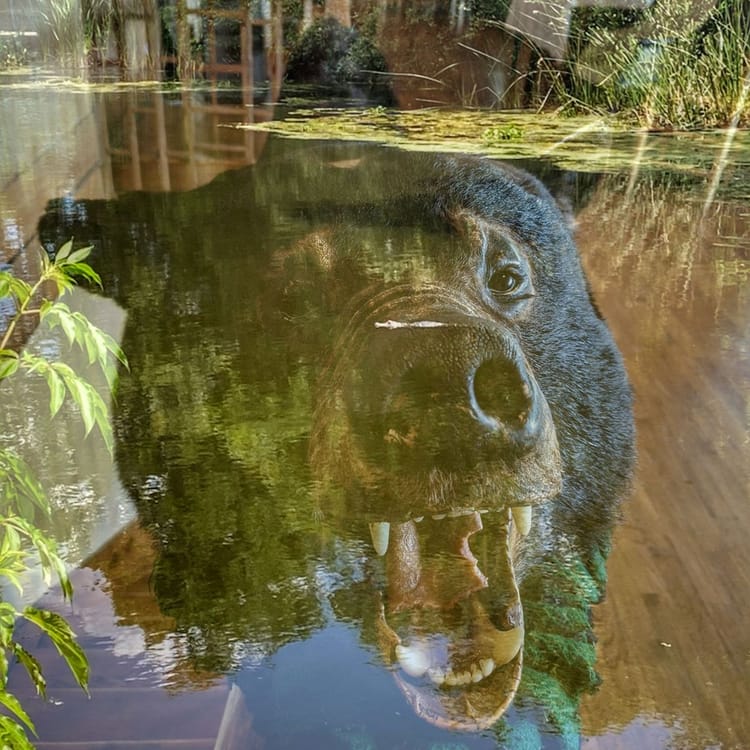
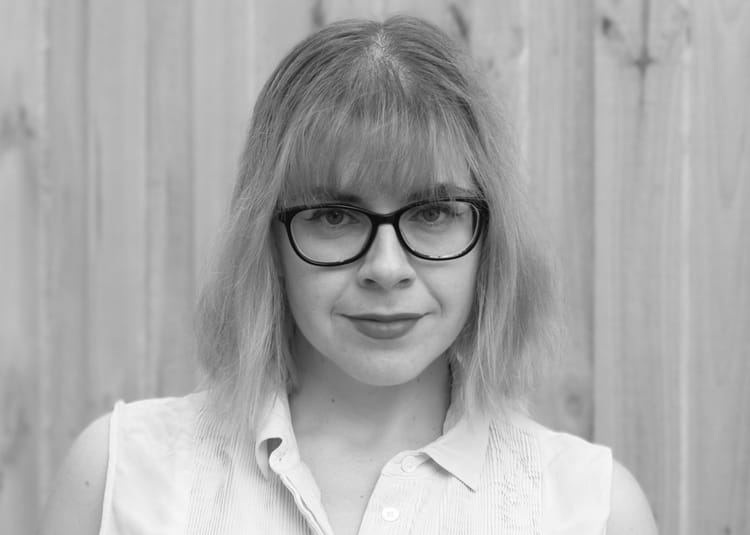
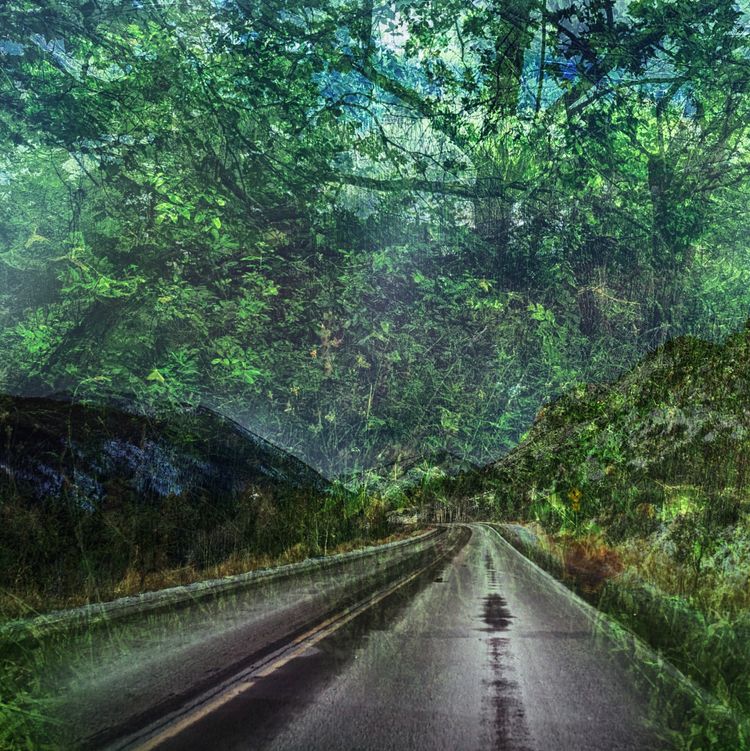
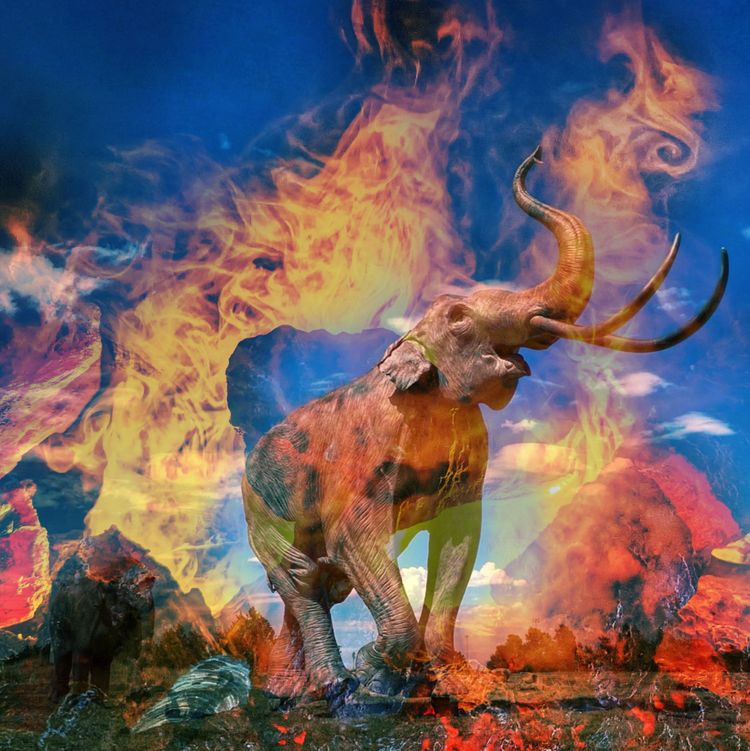
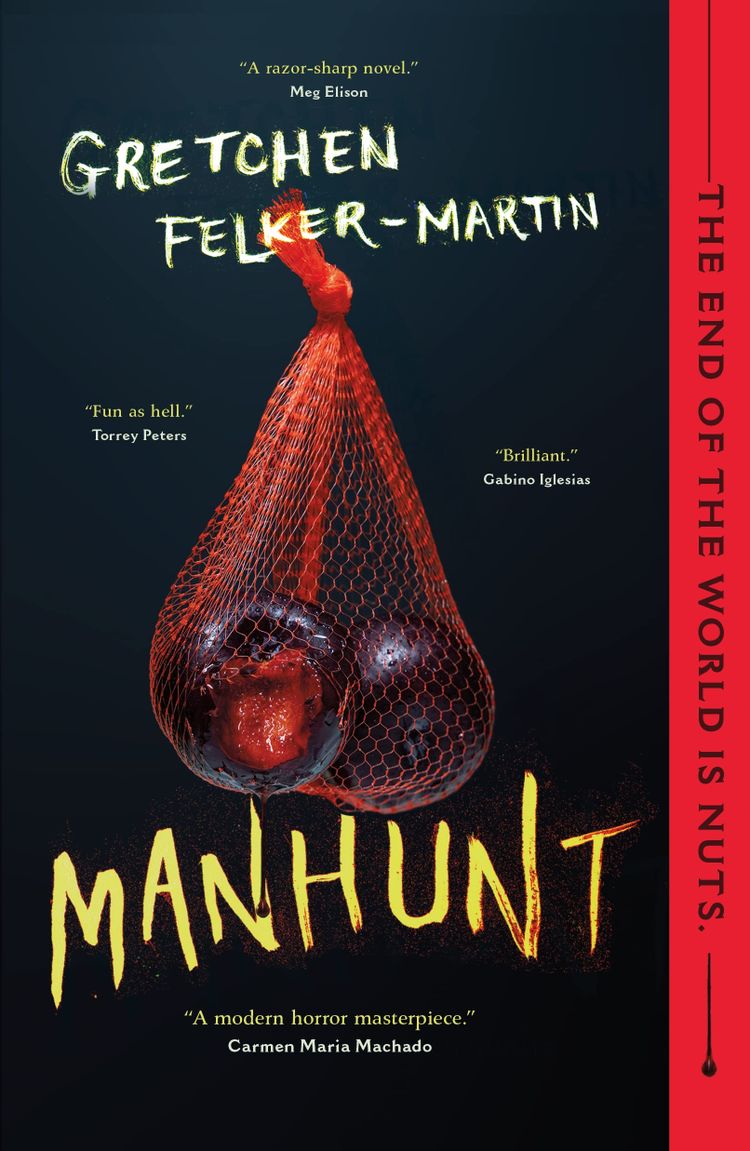
Member discussion